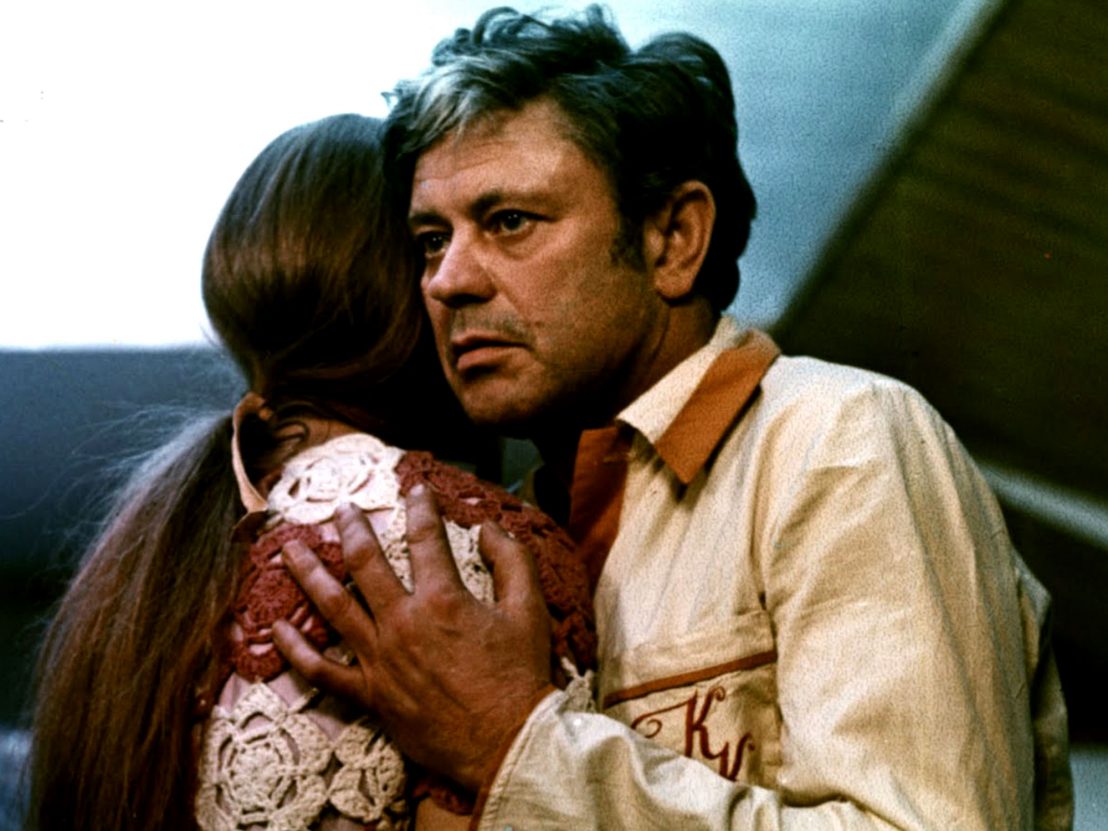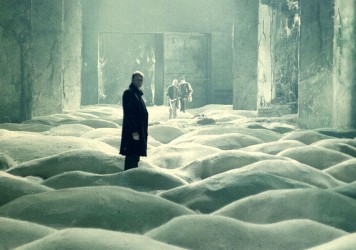
“We don’t want to conquer space at all. We want to expand Earth endlessly. We don’t want other worlds, we want a mirror.” These words, uttered by the disillusioned and paranoid Dr Snaut (Yuri Yarvet), paint in one simple stroke the existential horror and frightening truth of Andrei Tarkovsky’s 1972 magnum opus from Solaris. A film set aboard a lonely, half-abandoned space station orbiting the equally enigmatic titular planet, Solaris provides a more probing look into the narcissism of man than any film set on terra firma.
One of the most celebrated filmmakers of the 20th century, Tarkovsky here melds gorgeous, stark visuals with a meditative commentary on our place in the universe without missing a beat. The director’s earlier Andrei Rublev and later Stalker both interrogate the philosophies of humanity and the higher orders that govern our lives, with the former relying on bleak dystopia and the latter a 15th-century Christian Russia to navigate the intricacies of faith. But it’s this science-fiction epic that manages to package all of Tarkovsky’s existential anxieties into a one-man vessel and sends it hurtling into the unknown.
Kris Kelvin (Donatas Banionis) spends his remaining time on earth wandering the quaint countryside near his childhood home, situated by an algae-covered pond far from any cities. Kelvin, a psychologist, has been tasked with travelling to the Solaris space station to determine why its spartan crew of three have begun communicating in gibberish, hallucinatory messages. Kelvin’s father knows that he will not live to see his son return from the distant planet, and watches as Kelvin burns his possessions in a final cleansing of his life on Earth.

From its poignant opening 20 minutes, with Kelvin shedding his ties to his family and his past in the quiet grove where he grew up, Solaris instantly establishes itself as a film about what it means to be human, and our relationships with the world and those who inhabit it. Aboard the space station, Kelvin is haunted by a mirage of his late wife and memories of his home, and the suicide of a previous scientist casts its long shadow through the empty chrome corridors. All the life in this film is hanging in the balance, on the event horizon of a cataclysm of identity.
It matters not to Kelvin whether his wife’s doppelgänger, who committed suicide 10 years earlier, is real or not. Whether she is a simulacrum, a manifestation of a decade’s worth of grief-stricken memories, or a celestial hallucination, to Kelvin she is real. He can hold her, speak to her, and so he alone gives licence to her existence. Tarkovsky extends this idea to all our relationships, past and present, and asks us whether they really exist at all. Do we love the people around us, or simply how we perceive them? Is it the idea of them that sustains them, gives them life? How much do we really know about someone, save for our own mental colouring of their character?
Tarkovsky regularly takes us to task on such fundamentally upsetting ideas, challenging the fact that we may not be the centre of everything after all. We may not even be the edges, but rather some subatomic notion of everything. Solaris is a film that doesn’t just stagger and confound with its visual beauty and striking set design, but the ideas behind every frame add up to far more than the constituent parts. It is not simply the magnum opus of an acclaimed director, but the benchmark against which all sci-fi should be held accountable. No film before or since has placed such devastatingly human ideas into a place so devoid of life.
In the film’s breathtaking final shot, when Kelvin seemingly returns home and finds his father tending the same sleepy cabin that he left behind, Tarkovsky opens the airlock on his philosophical space station and lets the world in. Is all life one solipsistic fever dream? Do we wake up and stare at some grand reconstruction of a life, do we think with a conscience beamed from across the cosmos? What is simulated and what is real are, in Tarkovsky’s eyes, identical. As long as we believe something exists, everything else is lost in the ether.
Published 4 Feb 2017

The Russian director’s 1979 film is being reissued as part of a new retrospective.

Mad Max meets Monty Python is the best way of describing this strange, little-seen Soviet gem.

Fifty years ago the Russian director launched an epic exploration into the creation of art.